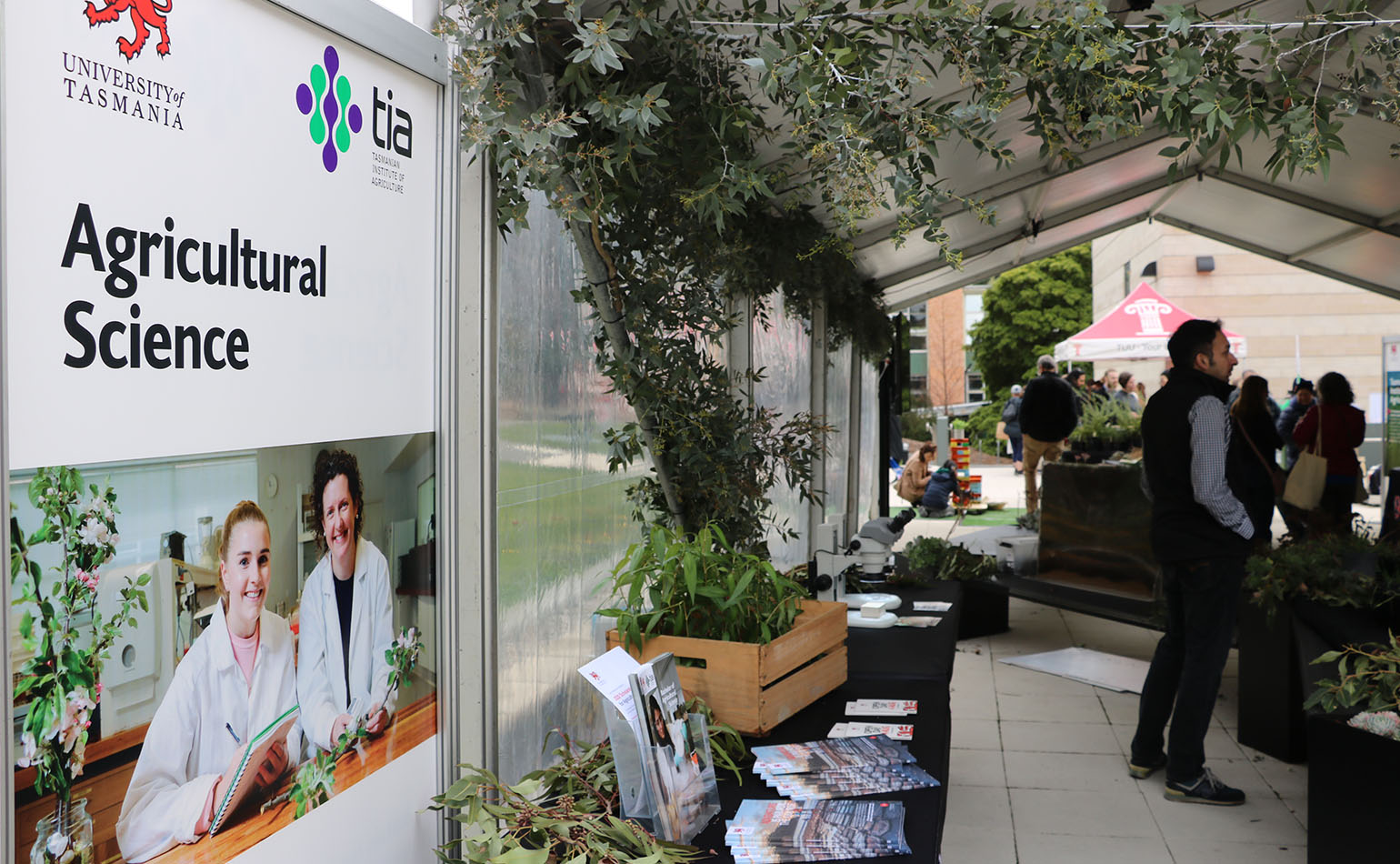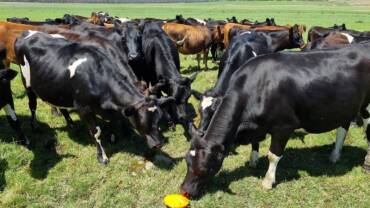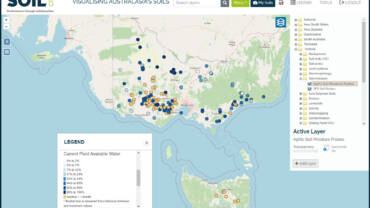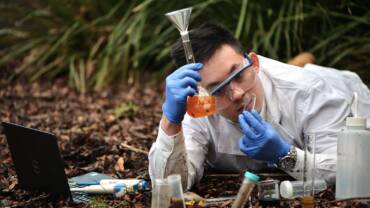Profile: University of Tasmania
News | Posted Oct 03,2019The University of Tasmania (UTAS) has campuses across Tasmania, with one in Hobart in the south, Launceston in the north and Burnie in the north-west, as well as two campuses in Sydney.
The bulk of the UTAS Soil CRC team work in the Tasmanian Institute of Agriculture (TIA). TIA is jointly funded by the Tasmanian State Government and the University of Tasmania; bringing together the human and physical resources of the Tasmanian Government with the scientific research and teaching capacity of the University of Tasmania.
It was one of the first institutes in Australia to employ this model, and it has been very successful over the past twenty years. The aim of TIA is to support sustainable agriculture and food sectors through high-impact research, development, extension and education.
The Soil CRC also has a strong link with Sense-T, a Tasmanian organisation that is pioneering data led translational research and innovation in the areas of agriculture, logistics, environmental management, data science and sensor manufacturing.
The diversity of geology, landscape and soils within Tasmania contributes to the rich depth of research that takes place in the state. It is recognised as a world leader for horticultural production; agriculture, land and farm management and inorganic chemistry.
The staff from UTAS that work with the Soil CRC also have a diverse range of research specialties, ranging from soil microbiology and chemistry to geology, economics, IT and mechatronics. This brings great depth and relevance to their research. UTAS also has very strong links with industry that adds value to their contributions to the Soil CRC.
Why the Soil CRC?
Sustainability and the environment are a big focus for the University of Tasmania, so being part of a research centre that is focussing on increasing the sustainability of Australian agriculture is very important. The Soil CRC also provides a fantastic connection to the mainland that is otherwise difficult to come by. It places the university at the forefront for building capacity in Tasmania.
Being part of the Soil CRC enables the team at UTAS to share ideas with other universities and build larger networks. The connections made through the Soil CRC have brought wider collaboration, beyond the scope of the projects that UTAS are working on in the Soil CRC.
The Soil CRC has strong collaborative approaches to research that encourage universities to meet and mix and form mutually beneficial connections. This is hugely important for the University of Tasmania particularly because of its location as an island state.
Projects UTAS are working on:
Smelling Soil – led by Dr Shane Powell, University of Tasmania, with collaborations from Birchip Cropping Group, FarmLink, Southern Farming Systems and Soils for Life.
Why soil management practices are adopted – led by Professor Vaughan Higgins, The University of Tasmania, with collaborations from Birchip Cropping Group, Central West Farming Systems, Charles Sturt University, Eyre Peninsula Agricultural Research Foundation, Mackillop Farm Management Group, Riverine Plains Inc., University of Southern Queensland and Western Australian No-Tillage Farmers Association.
‘Smart’ soil sensors – led by Dr Marcus Hardie, University of Tasmania, with collaborations from University of Southern Queensland.
Collaborative approaches to innovation – led by Dr Nicholas Pawsey, Charles Sturt University, with collaborations from Federation University, Murdoch University, University of Southern Queensland and University of Tasmania.
Understanding and promoting good soil stewardship – led by Professor Mark Morrison, Charles Sturt University, with collaborations from the University of Tasmania.
Visualising Australasia’s Soils – led by Associate Professor Pete Dahlhaus, Federation University with collaborations from Landcare Research New Zealand, University of Tasmania, University of Southern Queensland, Birchip Cropping Group, Burdekin Productivity Services, Central West Farming Systems, Gillamii Centre, Herbert Cane Productivity Services, Landmark, Liebe Group, Mackillop Farm Management Group, Mallee Sustainable Farming, North Central Catchment Management Authority, Riverine Plains Inc, Southern Farming Systems, Western Australian No-Tillage Farmers Association and Wimmera Catchment Authority.
Improving decision support systems – led by Dr Keith Pembleton, University of Southern Queensland, with collaborations from University of Tasmania, NSW Department of Primary Industries, Burdekin Productivity Services, Birchip Cropping Group, West Midlands Group and Riverine Plains Inc.
| Researcher | Field of expertise |
| Richard Doyle | Soil science, soil formation, soil stratigraphy, geomorphology and land evaluation |
| Vaughan Higgins | Sociology of agriculture and food, agricultural policy and mechanisms of adoption |
| Peat Leith | Public policy and investment in natural resource management and sustainability and valued social outcomes |
| Penny Cook | Sociology, extension and adoption |
| Melanie Bryant | Business and economics, adoption of biosecurity policy and practice, smart farming technologies |
| Shane Powell | Microbiologist specialising in soils and environmental systems |
| Robert Hardy | Soil scientist specialising in soil chemistry |
| Caroline Mohammed | Soil microbiology |
| Stephen Cahoon | Sensor technologies, Internet of Things, data platforms and analytics |
| Benjamin Cameron | Web application engineering |
| Warwick Gillespie | Sensor visualisation and engineering |
| Andre Iwers | Mechatronic engineer with expertise in optoelectronics and lab-on-a-chip technologies |
| Marcus Hardie | Soil and irrigation science |
| Darren West | PhD candidate on smarter soil moisture sensors project |
| Reuben Mah | PhD candidate on lab-on-a-chip PhD project |
| Michael Breadmore | Analytical chemistry specialising in microfluidics and lab-on-a-chip technologies |
| Fernando Maya Alejandro | Chemistry and researching the development of novel materials and chemical separation |
| Jonathan Ojeda | Agricultural systems and biophysical crop modeling |
| Morag Glen | Molecular biology and mycology and fungal diversity |
| Francisco Ascui | Environmental accounting and finance |





